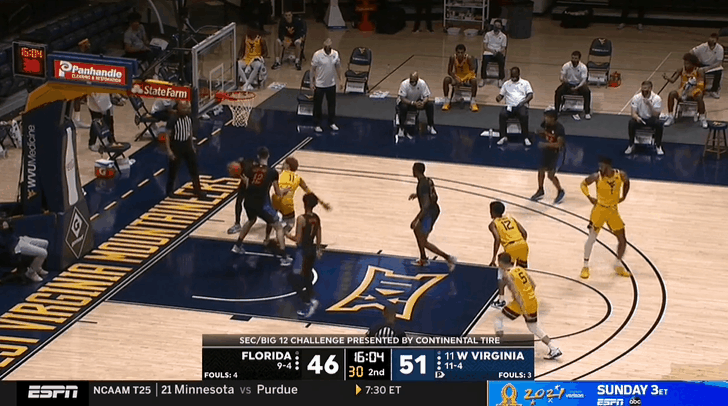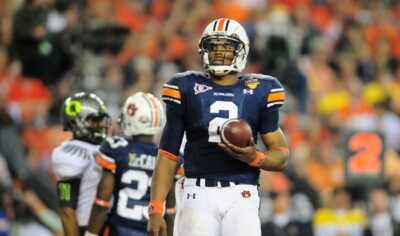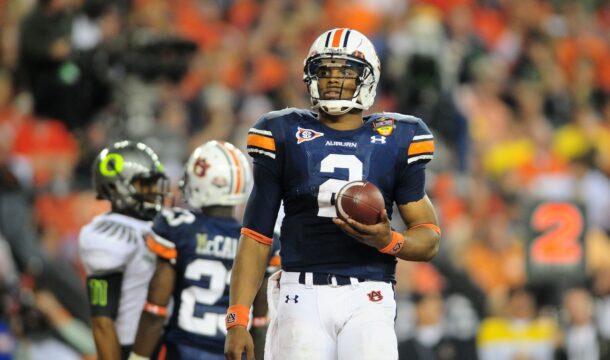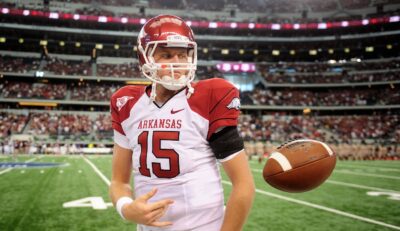
Florida overcame incredible adversity a season ago to advance to the program’s 4th consecutive NCAA Tournament, the SEC’s longest active streak. The Gators came within a media timeout of the Sweet 16 before squandering a double-digit second-half lead against Cinderella Oral Roberts. Should Florida have held on against Oral Roberts? Yes.
But the fact remains the Gators are 1 of just 6 programs nationally to win a game in each of the past 4 NCAA Tournaments, and last year, they did it despite losing their All-American and preseason SEC Player of the Year Keyontae Johnson in horrific fashion in the season’s 4th game. His loss had a significant basketball impact. Florida didn’t even practice for 2 weeks after Johnson’s collapse, then had to reinvent itself — and change its offense — on the fly in SEC play. Throw in an NCAA-high 3 COVID pauses, and you get a sense of what Mike White had to work around last season and just how remarkable a return to the NCAA Tournament was with that team.
Despite this, the narrative around Florida nationally is that the Gators have fallen from the SEC’s elite since the departure of legendary coach Billy Donovan to the NBA. In that narrative, White enters the 2021-22 season on the hot seat, having lost the belief of a very vocal (if not minority portion) of the Florida fan base.
Is that narrative fair? That’s more complicated. Florida under White has won more games than any SEC program other than Kentucky. White ranks 2nd in SEC wins since he arrived (a group that includes Hall of Famer Rick Barnes, Bruce Pearl and Ben Howland). Florida also ranks 2nd in SEC road wins and 2nd in wins against the top 10 and top 25 under White. White is the 2nd-winningest coach in the sport under the age of 45 (Shaka Smart) and the Gators have the SEC’s longest NCAA Tournament streak. Given that, has Florida fallen from the national and SEC elite? The facts suggest no, but sometimes perception is reality.
Can Florida extend their SEC best streak to 5 and again put themselves in a position to play a game to reach the Sweet 16? It’s possible, but prognosticators nationally aren’t bullish on the 2021-22 Gators. Johnson has not been cleared to return and play, sharpshooting guard Noah Locke transferred (Louisville), All-SEC guard Tre Mann is off to the NBA (1st round, Oklahoma City), and Mann’s fellow former McDonald’s All-American, Scottie Lewis (2nd round, Charlotte Hornets), is also off to play professionally.
Replacing that production, along with questions about Florida’s consistency, has led most national analysts to peg the Gators as a middle-of-the-pack finisher in the SEC.
Those aren’t the expectations at Florida.
The good news? White, who has been masterful in his use of the transfer portal (SEC 6th Man of the Year, Canyon Barry; Kerry Blackshear Jr., Jalen Hudson, among others), has built a deep, veteran roster that may be his most balanced since the Gators reached the Elite 8 in White’s 2nd season. Will that be enough to exceed outsider expectations and meet the program’s demanding internal expectations? Florida thinks so.
“We aren’t worried about what people think of us,” a Florida assistant told me earlier this autumn. “We know what kind of team we can be and it is a good one.”
Best player: Colin Castleton, Center
Castleton, a preseason first-team All-SEC selection, was a revelation last year after transferring in from Michigan. Castleton didn’t play much in Ann Arbor, averaging just 6 minutes and 2.5 points per game in his 2 seasons in the B1G.
But the former 4-star recruit returned home to the Sunshine State and took the SEC by storm, stuffing the stat sheet and ranking in the top 100 nationally in a host of categories: block rate (29th, best in SEC); effective field goal percentage (83rd); true shooting percentage (47%, 2nd in the SEC); offensive rebounding rate (79th, 3rd in SEC); and free throw rate (93rd). Castleton is, at a minimum, one of the nation’s best rim protectors, long and instinctual:
What a block by Colin Castleton ? pic.twitter.com/AgdZj8ancJ
— Clayton Sayfie (@CSayf23) March 19, 2021
He’s also polished offensively around the basket, with good hands and footwork and a solid jump hook he can make in traffic. Castleton’s 1.1 points per possession on post-ups was one of the best numbers in the country, and his length made it so that his hook shots around the rim were largely unblockable. He’s also a tremendous rim runner, which is why the Gators were so efficient when they pushed tempo last season, scoring at 1.12 points per possession (3rd in the SEC behind Alabama and Arkansas).

Castleton won’t be the sun around which the Florida offense orbits, but he will be the program’s most critical player in 2021-22. What White needs from him are 3 things.
First, he needs to be more consistent. Understandably, Castleton tired down the stretch last season after playing the most basketball of his career. The result was some uneven performances down the stretch. Castleton was a monster in Florida’s NCAA Tournament win over Virginia Tech (19 points, 14 rebounds, 3 blocks, 4 assists!), but disappeared in March losses at Tennessee, in a home game against Missouri, and again against the Vols in the SEC Tournament quarterfinals.
Second, can he be a better passer? Castleton has shown he can pass the ball but also had moments where his decision-making appeared slow, especially when doubled. Whether that was about a lack of off-ball movement or about Castleton being indecisive is a fair debate, but Florida uses many Princeton-inspired motion concepts that rely on a big catching the ball in the high post and becoming the trigger man and they have had success with it. Castleton as the trigger man could make that lethal with Florida’s shooters this season.
Finally, can Castleton handle the leadership load while being the guy defenses key on? With Johnson sidelined and Mann gone, teams won’t want Castleton to beat them. Florida has other scoring options, but how will Castleton, a fiery player who at times last season let his emotions get the best of him, react to being the focus of Florida’s opponents? Time will tell.
Biggest strength: Balanced scoring
A season ago, Florida was sunk if Mann and Castleton didn’t play well.
This year, the Gators have at least 5 players who could average double-digit points a night. Transfers Brandon McKissic (Missouri-Kansas City) and Phlandrous Fleming (Charleston Southern) are both capable scorers who should average near double digits, even if they go about it in different ways. Both can knock down shots from the perimeter (42.9% last year for McKissic on high volume; 32% for Fleming on high volume), and Fleming can attack the basket and draw contact, something Florida has lacked the past few seasons. Throw in Penn State transfer Myreon Jones, a sniper who has shot 42% from deep in the best basketball conference in the country over the past 2 seasons, and senior guard Tyree Appleby, who averaged 11.3 points per game and is Florida’s most creative playmaker, and you have 5 guys who can get to 10 a night.
That makes this Florida team the most balanced White has had since his Elite 8 group, and one that, on paper at least, looks a lot like last year’s Arkansas team, which had 4 players average 10 or more a game and 6 average 7.5 or better. That type of balance can insulate a team from defeat on a cold shooting night.
Biggest weakness: Defensive rebounding
Florida has struggled mightily to rebound the ball on defense the past 3 seasons, finishing 275th, 150th and 313th nationally in those categories, per KenPom. Can that be better in 2021-22? Perhaps.
Florida hit the portal for CJ Felder, a tenacious rebounder and rim protector out of Boston College, and that should help. But Felder played only sparingly in Florida’s preseason exhibition against Embry-Riddle, with White relying more on senior Anthony Duruji and Castleton down low. Both Durjui and Castleton are good shot blockers but subpar rebounders for their positions.
Can Florida’s guards contribute on the glass? The Gators should get more than last year from their guards in this department, with Noah Locke, who lacked athleticism, and Scottie Lewis, who at times lacked interest in fighting on the glass, gone. Fleming, who averaged 7.4 per night last year at Charleston Southern, could be key in this area.
Whatever the rotational solution, this will be a battle all season for the Gators.
Keys to the season: Is the elite defense back?
At a fan and media event this summer, White told me that “defensive culture was big on (Florida’s) whiteboard” for the coming season. On his best teams at Louisiana Tech and Florida, White’s teams have been elite defensively. White’s first 4 Florida teams finished 14th, 5th, 16th and 24th in KenPom defensive efficiency, respectively. There was a time, then, that Florida’s defense could win games.
Wow! #Gators win on a steal and a coast-to-coast buzzer-beater. Watch Chiozza anticipate the pass before it was even thrown. Gorgeous. pic.twitter.com/zmQattk7rD
— Cork Gaines, Ph.D. (@CorkGaines) January 6, 2018
The Gators have fallen to 61st and 41st since, much to White’s chagrin.
To remedy that problem, White used the portal to acquire 3 outstanding defenders in McKissic (Summit League Defensive Player of the Year), Fleming (Big South Defensive Player of the Year), and Felder (one of the top-rated defenders in ACC, per Bart Torvik). That, along with the continued development of wing Niels Lane, a lockdown defender who needs to figure out how to score to play more, could guide this group to a huge jump on defense. Florida is fast and committed to playing great defense, even if they will lack outstanding length in many rotations.
But just how big a leap this group takes defensively will define the season for Florida.
Scouting the backcourt
McKissic and Jones should start, with Appleby bringing energy off the bench as the team’s sixth man. Beyond them, it’s a battle for the minutes that remain. Lane, as noted above, is a great defender but he struggled mightily offensively last year. Florida’s staff would love to play Lane 15 minutes a game, but he’ll have to pick up his offense to accomplish that feat. Kowacie Reeves, a high 4-star recruit and the runner up for Mr. Georgia Basketball in 2021, will also battle for minutes. Reeves is a legitimate 6-6, plays with a great motor and was one of the top 2 or 3 pure shooters in the class of 2021. How he catches on defensively will define his playing time.
White has always liked playing with 3 guards at times and Florida should do that plenty in 2021-22.
Scouting the frontcourt
Florida is deeper down low than they have been in several years.
Castleton leads the line, but the staff has gushed with praise for junior Jason Jitoboh, who is finally healthy and in great basketball shape. Jitoboh battled COVID, a lingering injury, and fitness issues a season ago but has high-level offensive skills, soft hands and a big body that could make him a quality change of pace this season for Florida up front.
At the 3 and 4, Florida could play Reeves, Fleming, Felder and Duruji. The big challenge for White will be finding a rotation that competes on the glass but doesn’t give up too much offensively.
Predicting how far they’ll go in March: Top 5 finish in SEC, Sweet 16
Florida’s balance, coupled with the fact this will be the SEC’s oldest team (average age actually higher than the Oklahoma City Thunder), should make this group one of the SEC’s pleasant surprises in 2021-22.
The Gators aren’t getting much national attention and didn’t get much love from the media at SEC Media Days, but Florida’s staff likes the team they’ve built. Why? The Gators have a chance to be excellent on offense and vastly improved on defense. They are deep, hungry and culturally, Florida expects to advance to the NCAA Tournament and play well in March.
Florida has gone 1-3 under White in the Round of 32, losing heartbreakers to Texas Tech (2017-2018) and Oral Roberts (2020-21) in that span. This team will break through and return White to the tournament’s second weekend for the first time since Year 2 on campus.
Neil Blackmon covers Florida football and the SEC for SaturdayDownSouth.com. An attorney, he is also a member of the Football and Basketball Writers Associations of America. He also coaches basketball.







